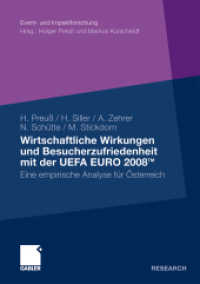Full Description
This book is an essential text for researchers and academics seeking the most comprehensive and up-to-date coverage of all aspects of e-learning and ICT in education, providing expanded peer-reviewed content from research presented at the 10th Panhellenic Conference on ICT in Education.








